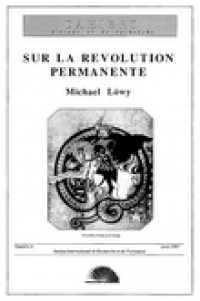
Few concepts have such a controversial history as the one of “permanent revolutionˮ. Formulated for the first time by Marx, it was redeveloped by Trotsky during the Russian revolution of 1905 as the foundation of his predicting the proletarian revolution of October 1917. From 1928, Trotsky made it a world-scale theory to explain the dynamics of social revolutions in colonial, semi-colonial and dependent countries of the periphery capitalism. This brochure includes both a detailed analysis of the different political and sociological aspects of the theory and an attempt of a critical balance sheet, in the light of the twentieth–century social revolutions. It is made up of two chapters extracted from the book The Politics of Combined and Uneven Development (London, New left Books, 1981), which is the first published work entirely dedicated to the theory of permanent revolution and to its historical reach. The analysis on Nicaragua was updated for the German edition in 1984 and the introduction was written for this Cahier.
Michael Löwy was born in Sao Paulo, Brazil : he has lived in Paris since 1969. As a sociologist, he worked as a research director in the CNRS and as a teacher in the Ecole des Hautes Etudes en Sciences Sociales. He wrote several books about the history of Marxism (translated into Spanish, English, Portuguese, Italian, German, Greek, Turkish, Japanese, etc), among which: La Pensée de Che Guevara, Paris : Maspero, 1970, La Théorie de la révolution chez le jeune Marx, Paris : Maspero, 1970, Les marxistes et la question de nationale 1848-1914 (avec G. Haupt et Claudie Weill), Paris : Maspero, 1974, Pour une sociologie des intellectuels révolutionnaires, Paris : Presses Universitaires de France, 1976, Le marxisme en Amérique Latine de 1909 à nos jours, Paris : Maspero, 1980 et Paysages de la vérité, Paris, Anthropos, 1986. He is a Research Fellow at the International Institute for Research and Education.
